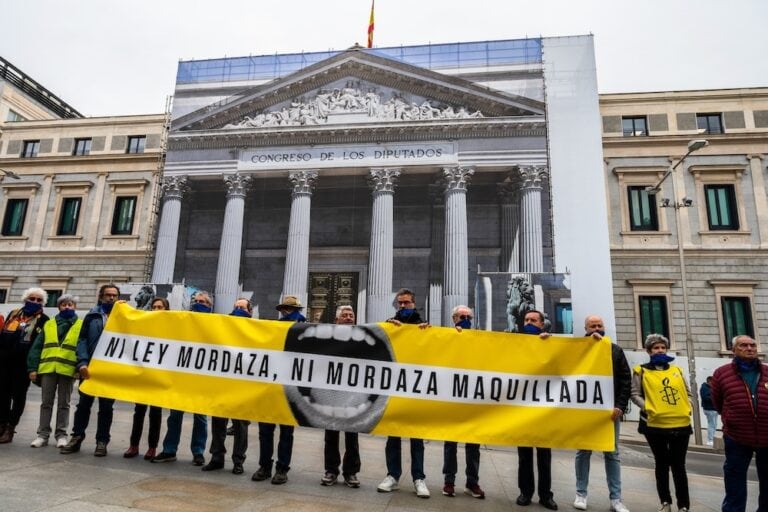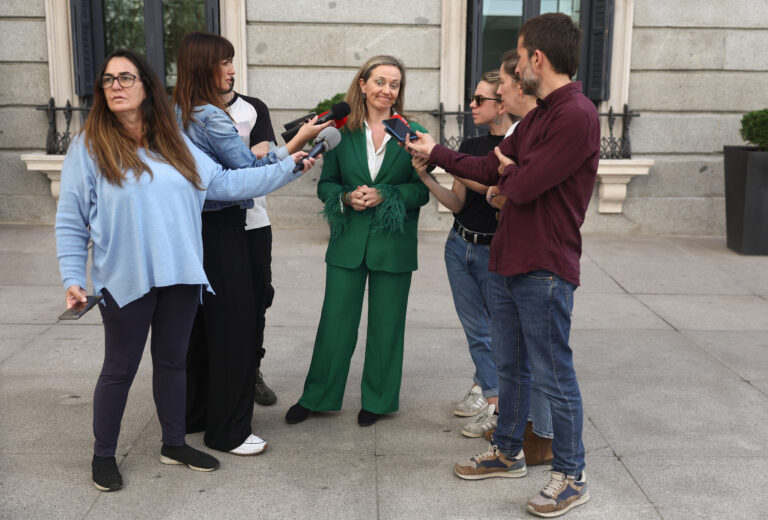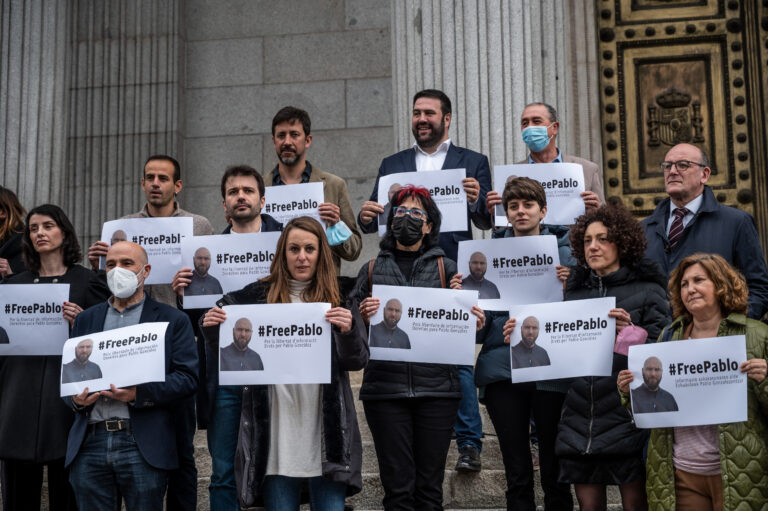"While we welcome that public communications strategies to counter disinformation are preferred over restriction-based approaches, we are worried that disinformation is seen as a national security concern and the objectives, actions and levels of the National Procedure fail to determine the aim they sought to protect."
This statement was originally published on article19.org on 14 September 2021.
ARTICLE 19 is concerned that the Spanish Ministerial Order Establishing the National Procedure Against Disinformation (the Ministerial Order) fails to observe international freedom of expression standards. While we welcome that public communications strategies to counter disinformation are preferred over restriction-based approaches, we are worried that disinformation is seen as a national security concern and the objectives, actions and levels of the National Procedure fail to determine the aim they sought to protect. The national procedure should instead provide clear guidance on the role of the government and other stakeholders in addressing the different issues disinformation causes, delimit public bodies and institutions competences on the basis of a legality and necessity assessment, and on how to jointly implement disinformation strategies at various levels.
Disinformation can cause serious harm to individuals and to society as a whole. Policy responses should be based on international freedom of expression standards. Counter-narrative and tiered approaches that engage civil society, journalists and media associations, independent fact-checking organisations, companies and other relevant private stakeholders comply with these standards.
Disinformation has been at the heart of many discussions in the past years as States attempt to tackle its spread, particularly online. The Spanish Government has proposed and adopted a range of measures to tackle this issue. Most recently, in October 2020, the Spanish Government adopted the Ministerial Order PCM/1030/2020 Establishing the National Procedure Against Disinformation (the Ministerial Order). The Ministerial Order is meant to implement the 2018 EU Action Plan and lay out the actions and processes that various Spanish authorities will undertake to prevent, detect, monitor, respond to, analyse and evaluate disinformation.
ARTICLE 19 has analysed the Ministerial Order from the perspective of international human rights standards, particularly focusing on the impacts it will have on freedom of expression. We welcome various aspects of the Ministerial Order. At the same time, the Spanish Government should conduct a comprehensive review of the rationale, legal basis and aims of the Ministerial Order and the national action procedure against disinformation to bring them in line with freedom of expression standards under international and regional human rights law. The forthcoming National Strategy against Disinformation is an opportunity for the Spanish Government to adopt a human rights-compliant approach to disinformation at national and regional levels.
ARTICLE 19’s concerns
- The Ministerial Order stresses on numerous occasions the importance of ‘true’ information. However, it does not address the scenario where untrue or misleading information does not endanger a protected aim under international standards. Indeed, untrue or misleading information is not, in itself, prohibited. It can be restricted when it endangers protected aims under international law.
- Disinformation is seen as a national security concern and the Spanish national security agencies will be in charge of the design, oversight and enforcement of the national procedure. National security agencies seem to have the final decision about how to conduct the implementation of the action procedure, what authorities should be involved and the tasks assigned to them.
It is unclear in the Ministerial Order which legitimate aims certain actions to tackle disinformation seek to protect. Any action that seeks to restrict disinformation, even if it causes harm to national security or public health, must be clearly justified, necessary and proportionate.
- The national procedure fails to differentiate the competences and actions at national and regional levels. Hence, there is no causal connection between the actions of the procedure and the aim pursued at national level as opposed to those aimed to cooperate with the EU at regional level. While the aims may be similar, the legal framework and relevant authorities may vary.
- In the Ministerial Order it appears that national authorities will have the final say on what is considered disinformation. Government authorities should not be considered the sole bearers of truth. In a democratic society, a plurality of information sources is essential for people to engage in public debate.
- Public bodies, agencies and authorities of the national system are tasked with various powers to prevent, detect and analyse disinformation. In the absence of independent oversight, we are worried that the procedure will allow national authorities the power to overly monitor content and interactions.
- Technological tools and techniques are considered for the implementation of the national procedure and for exchanging information with the EU task force and Rapid Alert System. It is unclear whether the Spanish Government is evaluating the necessity and impact of these tools at different levels of action and preventing the creation of a surveillance monitoring system of online content and users.
ARTICLE 19’s recommendations
The Spanish Government must ensure that its legal framework fully respects freedom of expression standards and ensure that it engages with all stakeholders. The Ministerial Order and the national procedure should not rely on national security grounds to address a wide range of forms and manifestations of disinformation. A diversified participation of other relevant authorities should be considered depending on the legitimate aim sought under international human rights law.
The Spanish Government should consider including a tiered approach to the action procedure based on the aim sought, the applicable regulatory framework for the protection of each aim and the jurisdiction of each set of actions. This tiered response should also seek to justify the different levels of intervention, making a clear distinction between domestic and regional actions. The implementation of the action procedure against disinformation is subject to independent oversight and available for public scrutiny.
The Permanent Commission against Disinformation should ensure that the forthcoming National Strategy against Disinformation is freedom of expression-compliant, designed and developed in close participation and engagement with civil society, journalists and media associations, independent fact-checking organisations, companies and other relevant private stakeholders able to provide expertise, evidence and contribute towards a multi-stakeholder approach to disinformation. It should establish an Advisory Committee responsible for overseeing the implementation of the National Strategy.



